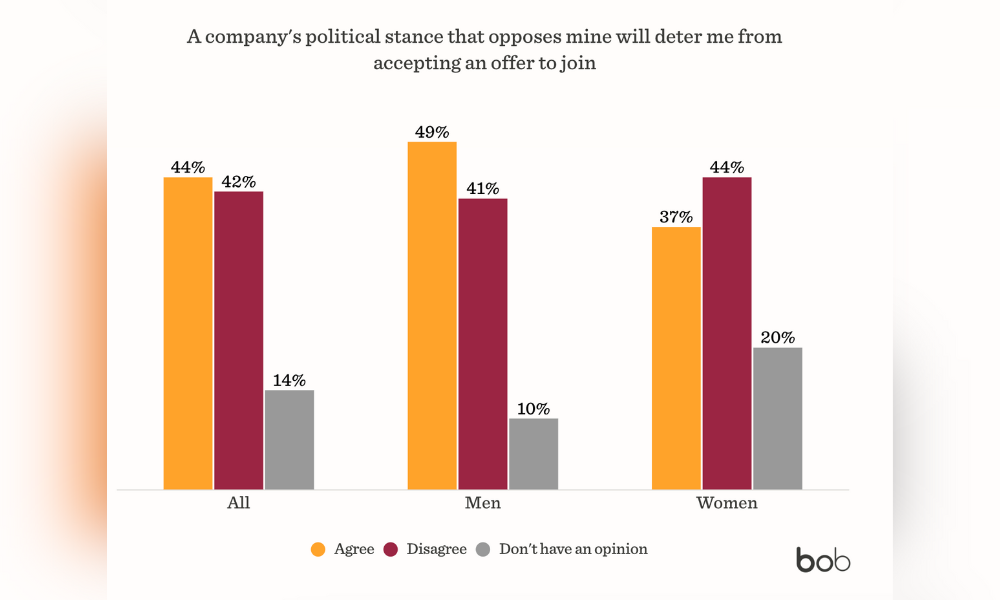
Job candidates less keen on employers with opposing views – and fewer employees comfortable discussing politics: survey

Six in 10 employees said they won't leave their employer for having an opposing political stance, according to a new report, which found that such issues are likely to hurt recruitment over staff retention.
HiBob's latest poll among 1,000 professionals in the United States found that 60% won't leave an employer for having a different political stance, up from the 46% in 2023.
But while it is less likely to impact retention, employers might have some roadblocks in hiring new staff, according to the report.
It found that 44% of employers are dissuaded from accepting job offers from a future employer with an opposing political view, up from the 39% in 2023.
Ronni Zehavi, CEO of HiBob, said this indicates that employees are seeking "alignment between personal beliefs and company values."

Source: HiBob's 2024 Sociopolitics in the US Workplace Study
But there are others who would rather stay in the dark about their organisation's political stance, according to the report.
More than half (51%) of the respondents said they don't want their CEOs to express opinions publicly, and another 34% they want their organisations to stay neutral on socio-political matters.
"Although differing political views may not prompt exits, the prevailing sentiment underscores a strong consensus for maintaining neutrality in the workplace," Zehavi said in a statement.
Meanwhile, the report also found that there is less inclination to discuss politics in the workplace.
About 60% are more hesitant in sharing their political views with each other, up from the previous 50%.
Half of the respondents are also afraid to share political opinions with their managers, citing its risk to their job and relationships.
Overall, 77% of the respondents said they would rather avoid political debates at work, and another 81% said they want these discussions out of the company's digital communication channels.
Despite this, 58% of the respondents said they would still support encouraging socio-political discourse in the workplace.
Nearly three in four (74%) of the respondents also said these discussions should take place in a safe space that allows opposing opinions to be expressed respectfully.
"Establishing clear guidelines and fostering respectful dialogue will help promote inclusivity and professional relationships," Zehavi said.